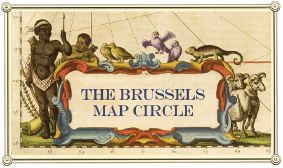(online) The Himalaya as a Scale for Global Histories of Science, Empire and Environment
Munich, Germany
Around 1800, the volcano Chimborazo in South America was believed by many European savants to be the highest mountain in the world. It was only around 1820 that Dhaulagiri in the Himalaya was accepted as higher, though not before brief outrage among those who doubted the measurements made by East India Company surveyors. Everest was only finally confirmed as supreme in 1856. In this talk, I examine the intervening decades, and the scientific, imaginative, environmental and political remaking needed to fit the Himalaya into a new global scientific and imperial order. Among other questions, I ask: why did altitude became central to understanding a variety of scientific and environmental phenomena in the early nineteenth century? How did global comparisons, especially with the Alps and the Andes, shape environmental imaginaries of the Himalaya (even as the scale of the global was itself made into powerful tool of empire)? How did these questions fuel concern around ‘blank spaces’ at the edge of the East India Company’s expanding empire in South Asia? And how were these reconfigurations contested and resisted by the Himalayan peoples that surveyors and naturalists always depended on in the mountains? Elaborating on my recent book, Science on the Roof of the World, I reflect on how mountains in general, and the Himalya in particular were reinforced as politically and environmentally marginal spaces in the nineteenth century (with consequences for the relationship of Himalayan peoples to both empire and to postcolonial South Asian states). I also use these arguments to reflect on the value of geographical features as scales for histories that transcend traditional national and area studies framings (drawing insights from the way that scholars have recently been using oceans, islands and beaches). Ultimately, I show how the remaking of the Himalaya on global scale was part of a wider process that saw ‘altitude above sea level’ enshrined as a category that makes some mountains matter more than others – a reconfiguration that echoes down to the present, perhaps most explicitly embodied by the ever-growing queues of climbers that form annually on Everest.
Lachlan Fleetwood is historian of science, empire, geography and environment. He is currently a Marie Skłodowska-Curie (MSCA) Fellow in the Centre for Global History, LMU Munich. Previously, he held research fellowships at University College Dublin and Yale University, and completed a PhD in history at the University of Cambridge in 2020. He is currently working on a new book project tracing the history of environmental and climatic sciences in Central Asia. His first book, Science on the Roof of the World: Empire and the Remaking of the Himalaya, was published by Cambridge University Press in 2022.
